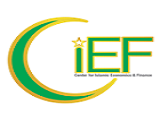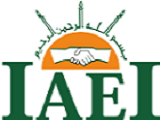Adoption of the AAOIFI International Code of Ethics for Indonesian Islamic Accountants
Abstract
Accounting scandals against standards still occur in Indonesia. The Indonesian Islamic accounting code of ethics needs to be formulated in line with the development of Islamic accounting practices in Indonesia. The preparation of the Islamic accounting code of ethics needs to adopt the AAOIFI International Islamic accounting organization code of ethics. This study aims to describe the recommendations of scholars regarding the adoption of the AAOIFI code of ethics for Indonesian Islamic accountants. This research uses a qualitative type prioritizing interview techniques in collecting data. The study used the AAOIFI code of ethics through interviews with ulama (scholar) from the Indonesian Ulema Council (MUI). The results of this study are the adoption of the AAOIFI code of ethics provides guidelines for the preparation of a code of ethics for Indonesian Islamic accountants. The preparation of the code of ethics for Islamic accountants applies Islamic law in order to provide solutions to contemporary modern problems. The adoption of the AAOIFI International Code of Ethics takes into account the Indonesian urf am so that it is in accordance with existing financial accounting practices.
Keywords
Full Text:
PDFReferences
Abdul Basith, A., Shawish, Z. K. A., & Ousama, A. A. (2020). Corporate governance disclosure compliance: a comparison between conventional and Islamic banks. International Journal of Electronic Banking, 2(1), 1. https://doi.org/10.1504/ijebank.2020.105413
Ahmad, N. L., Ahmed, H., & Mustaffa, W. S. W. (2017). The Significance of Islamic Ethics to Quality Accounting Practice. International Journal of Academic Research in Business and Social Sciences, 7(10). https://doi.org/10.6007/ijarbss/v7-i10/3425
Alam, K., Karbhari, Y., & Rahman, M. (2021). Adaptation of New Institutional Theory in Shariah Governance Practice , Structure and Process. Journal of Business, Economics and Environmental Studies, 11(1), 5–15. https://doi.org/10.13106/jbees.2021.vol11.no1.5
Amilin, A. (2016). Could islamic work ethics reduce the work stress of accountants and minimize their intention to quit? International Journal of Economic Perspectives, 10(2), 134–145.
Ayub, M. (2021). Need for Moving to the VBI based Paradigm of Governance of Islamic Finance Institutions. 11(01), 1–9.
Bechihi, O., Boumediene, S. L., & Nafti, O. (2021). Compliance and Determinants of the AAOIFI Financial Standards: Evidence from the MENA Region. Asia-Pacific Management Accounting Journal, 16(1), 207–248. https://doi.org/10.24191/apmaj.v16i1-09
Czerny, M. M. E. (2021). Religion as a Source of Islamic Ethics and its Impact on the Islamic Accounting System. Acta Universitatis Lodziensis. Folia Oeconomica, 4(355), 28–46. https://doi.org/10.18778/0208-6018.355.02
Ehsan, A., Saeed, S. K., Shahzad, M. A., & Iqbal, H. R. (2018). Compliance of Financial Statements of Islamic Banks of Pakistan with AAOIFI Guidelines in General Presentation and Disclosure. SEISENSE Journal of Management, 2(1), 12–21. https://doi.org/10.33215/sjom.v2i1.53
Elgattani, T., & Hussainey, K. (2020). The determinants of AAOIFI governance disclosure in Islamic banks. Journal of Financial Reporting and Accounting, 18(1), 1–18. https://doi.org/10.1108/JFRA-03-2019-0040
Gassama, S., Sawarjuwono, T., & Hamidah, H. (2021). Islamization of Accounting Policies as a Solution to the Ethical Problem in Accounting through Accounting Education. Budapest International Research and Critics Institute (BIRCI-Journal): Humanities and Social Sciences, 4(2), 1607–1617. https://doi.org/10.33258/birci.v4i2.1822
Habibu, U., & Muhammad, J. (2021). Exploring the Reasons for the Low Level of Awareness and Knowledge of AAOIFI Accounting Standards in Nigeria. Journal of Islamic Finance, 10(1), 1–14.
Jaffar, R., Alsheikh, W., Hassan, M. S., & Abdullah, M. (2021). Voluntary Risk Disclosures of Islamic Financial Institutions: The Role of AAOIFI Standards Implementation. Asian Journal of Accounting and Governance, 15, 1–14. https://doi.org/10.17576/ajag-2021-15-04
Khajavi, S., Eidadi, S. E., & ... (2020). Islamic Ethics: A Framework for the Compilation of Professional Accounting Practices. Journal of Accounting …, 10(3), 1–29. https://doi.org/10.22051/ijar.2020.26313
Kiran Shahzadi1, MALIK, H., Malik Shahzad Shabbir, & Attiya Yasmind. (2021). Factors Affecting Profit Distribution Management of Islamic Banks: Moderating Role of Corporate Governance. Islamic Banking and Finance Review, 8(1), 78–102. https: //doi.org/10.32350/ibfr/2021/08/1624
Mohammed, N. F., Fahmi, F. M., & Ahmad, A. E. (2015). The Influence of AAOIFI Accounting Standards in Reporting Islamic Financial Institutions in Malaysia. Procedia Economics and Finance, 31(15), 418–424. https://doi.org/10.1016/s2212-5671(15)01216-2
Mulyany, R., Furqani, H., Ibrahim, S. H. M., & Hamoudah, M. M. (2021). Revisiting the Idealism of Syariah Audit for Islamic Financial Institutions. Al-Uqud : Journal of Islamic Economics, 5(2), 184–202. https://doi.org/10.26740/al-uqud.v5n2.p184-202
Musa, M. A., Sukor, M. E. A., Ismail, M. N., & Elias, M. R. F. (2020). Islamic business ethics and practices of Islamic banks: Perceptions of Islamic bank employees in Gulf cooperation countries and Malaysia. Journal of Islamic Accounting and Business Research, 11(5), 1009–1031. https://doi.org/10.1108/JIABR-07-2016-0080
Namazi, M., & Rajabdorri, H. (2020). A mixed content analysis model of ethics in the accounting profession. Meditari Accountancy Research, 28(1), 117–138. https://doi.org/10.1108/MEDAR-07-2018-0365
Wahyuni-TD, I. S., Fernando, Y., Hasnita, E., & Hasnita, E. (2018). Role of Islamic Ethics Towards Ethical Accounting Practice. Journal of Governance and Integrity, 2(1), 23–27. https://doi.org/10.15282/jgi.2.1.2018.5535
DOI: http://dx.doi.org/10.24042/febi.v6i2.11528
Refbacks
- There are currently no refbacks.
Copyright (c) 2021
Ikonomika : Jurnal Ekonomi dan Bisnis Islam is a Journal of Islamic Economics and Business, Published by the Faculty of Islamic Economics and Business at UIN Raden Intan Lampung Indonesia. This work is licensed under a Creative Commons Attribution-ShareAlike 4.0 International License.






11.png)


